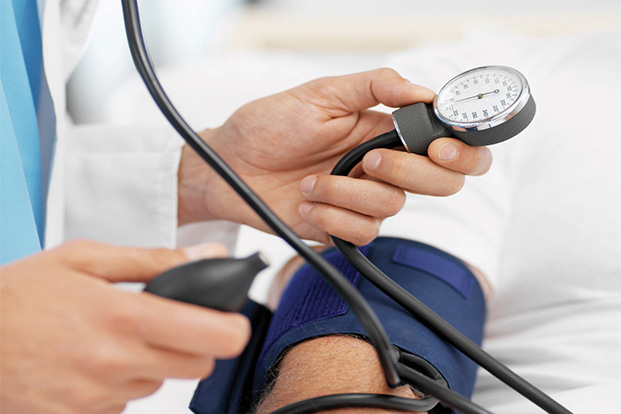Why is High Blood Pressure dangerous?
Apr 19, 2022
Hypertension or high blood pressure can damage our body. If it is left uncontrolled, one may have a disability, poor life quality or a massive heart attack. Almost 50% people with hypertension die due to heart disease relevant to poor blood circulation or ischemic heart disease. Studies also highlight that a third of hypertension patients die due to stroke. Hence it can be concluded that hypertension is the root cause of a number of deadly lifestyle diseases that can prove to be fatal, it not detected and treated at the right time.

Side effects of Hypertension:
If not effectively controlled high blood pressure can lead to below problems:
Damage to arteries
A healthy artery is strong, flexible and elastic with smooth inner lining for free blood circulation to supply tissues and organs with oxygen and nutrients. As hypertension raises pressure of blood that flows in arteries, one may experience-
Narrowed or damaged arteries
Hypertension damages the cells of an artery’s inner lining. Hence when fat from our diet penetrate the bloodstream, they collect in damaged artery, making it less elastic and restricting the flow of blood across our body.
Aneurysm
Over a period of time, regular pressure of blood flowing within a weak artery can cause the artery’s wall to enlarge and form a bulge or aneurysm which can rupture and also cause lethal internal bleeding. They are mainly common in aorta or largest artery of body.
Damage to heart
As the heart pumps blood to our entire body, uncontrolled hypertension can damage our heart in below ways-
Coronary artery disease- This disease affects the arteries which supply blood to the heart. Coronary artery disease narrows the arteries thus restricting the free flow of blood across the arteries. One experiences chest pain, heart attack or arrhythmias or irregular heart rhythms if blood does not flow freely to their heart.
Enlarged left heart-Hypertension forces the heart to work harder than required for pumping blood to the rest of the body. Hence the left ventricle thickens and this is known as left ventricular hypertrophy. Such changes restrict the ability of the ventricle to pump blood to our body. This raises the risk of heart attack, failure or even a sudden cardiac death.
Damage to brain
Similar to heart, the brain also depends on a healthy supply of blood for working properly. Hypertension can cause many problems like:
Stroke
It occurs when a part of the brain does not get nutrients and oxygen, which causes brain cells to die. Uncontrolled hypertension can result in stroke by weakening and damaging the blood vessels of the brain, making them narrow then rupture or leak.
Dement
This is the disease of the brain leading to problems with thought, speech, reason, movement and vision. Blockage in or narrowing of arteries supplying blood to the brain causes vascular dementia.
Damage to kidneys
A Kidney depends on a process comprising of healthy blood vessels, as they filter the excessive waste and fluid from our blood. Hypertension can hamper blood vessels within the kidneys, hence causing many kinds of kidney problems or nephropathy. Diabetes along with high blood pressure worsens the damage. One of the most common reasons for kidney failure is high blood pressure.
Damage to bone
Bone loss- Hypertension can raise the volume of calcium present in urine. The excessive excretion of calcium can result in loss of bone density or osteoporosis that can result in broken bones. The risk is quite high in older women.
Hence if you are suffering from hypertension, it is best advised that you opt for proper management and control of the ailment. Opt for medical consultation and a strict medical regime. Remember ignoring your health and missing your medication can affect your other organs. It is best advised that if you are 40 yrs and above and suffering from hypertension issues, opt for an annual full body health check up.







